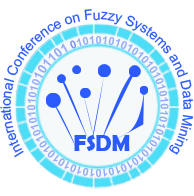Invited Speaker

Dr. Mohd Hanafi Ahmad Hijazi, Associate Professor
Faculty of Computing and Informatics, Universiti Malaysia Sabah, MalaysiaSpeech Title: Presentation Attack Detection for Automatic Speaker Verification Systems: Trends and Potential Future Work
Abstract: The emergence of biometric technology provides greater security than the traditional identification and authentication techniques, which are less efficient and secure. However, the existing biometric systems such as Automatic Speaker Verification systems (ASV) are weak against presentation attack, a spoofing attack launched towards the speaker recognition system to gain access. There were numerous Presentation Attack Detection (PAD) systems reported in the literature, but lack of systematic survey available that describes the current state of research and application. This work presents a systematic analysis of state-of-the-art voice PAD systems to provide researchers with evidence to promote further advancement in this area. The objectives are two folds: (i) to understand the nature of recent work on PAD systems, and (ii) to identify areas that require additional research. As a result, a taxonomy of voice PAD and the trend analysis of recent work on PAD systems were built and presented, whereby the recent and relevant articles, mostly indexed by Scopus, published between 2015 and 2021 were considered The findings of this survey present the limitation of recent works, which include spoof-type dependent PAD, and the future direction of work on voice PAD for interested researchers is established.
Keywords: speaker identification, speaker verification, anti-spoofing voice recognition, voice presentation attack detection
Biography: Mohd Hanafi Ahmad Hijazi is an Associate Professor of Computer Science at the Faculty of Computing and Informatics, Universiti Malaysia Sabah in Malaysia. His research work addresses the challenges in knowledge discovery and data mining to identify patterns for prediction on structured and/ or unstructured data; his particular application domains are medical image analysis and understanding and sentiment analysis on social media data. He has authored/ co-authored more than 50 journals/ book chapters and conference papers, most of which are indexed by Scopus and ISI Web of Science. He also served on the program and organizing committees of numerous national and international conferences. He is the leader of the Data Technologies and Applications research group at the faculty.
